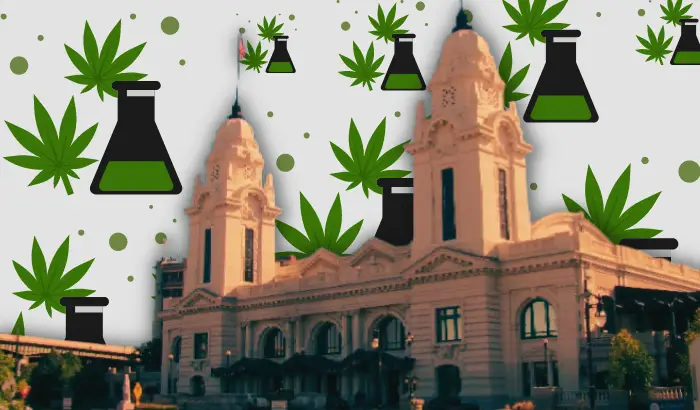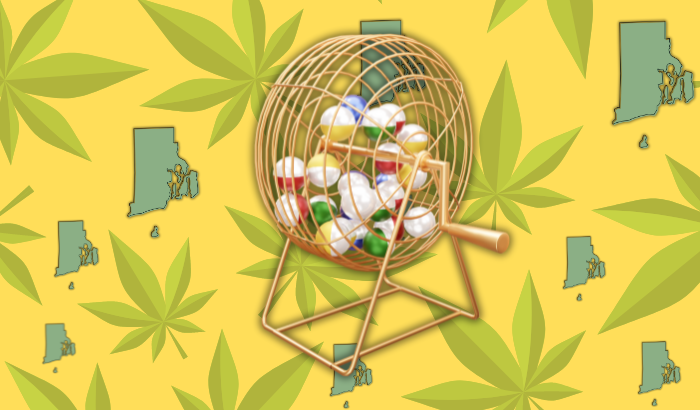
Issues around Independent Testing Labs for Massachusetts marijuana products were front and center at Cannabis Control Commission hearing
From inflated potency and moldy products to irradiation, the Cannabis Control Commission heard about a range of issues that are relevant to product standards and evaluation, some of which damage the industry and potentially harm consumers, during a listening session on Independent Testing Labs (ITL) in Massachusetts held this Thursday.
With the floor open to testimonies given virtually or in person at the CCC office in Worcester, commissioners received recommendations from testing labs and other stakeholders. Speakers addressed different elements of the complex topic, but many circled common themes like standardizing methods and releasing testing data to the public. Some also spoke about remediation, and whether cultivators should be required to label products that have undergone certain processes in order to meet testing requirements. At the same time, the vagueness of those requirements was also called into question.
Corey Aldoupolis, the lab director for ATOZ Laboratories in Hopkinton, read from a letter to the commission on behalf of 12 active ITLs: “The highest priority is establishing communication between the labs and the commission.” He added, “ITLs are uniquely positioned to support and educate the commission on issues that continue to impact the public. Unfortunately, many ITLs have experienced frustration with the adversarial relationship with the commission.”
Aldoupolis requested that the CCC schedule quarterly meetings with testing labs in order to improve communication between the two parties as the agency weighs possible regulatory changes to its testing requirements.
The current limits for microbial testing in cannabis in Massachusetts allow for samples to pass as long as they contain fewer than 10,000 colony-forming units. This is a common threshold in other legal state markets, though more and more are adopting testing methods that detect specific microbials that could be harmful to consumers, rather than measure for the total amount of yeast and mold.
Cannabis remediation typically involves blasting the harvested crop with ozone or radiation so that microbials are rendered inert without actually removing the biological material from the plant.
Massachusetts also lacks a specific guide for how to test for microbials, so labs are free to choose which medium they use for samples. Those choices can result in different rates of detection.
“There are people that point to a 4% failure rate, people that have 13% failure rates,” said Kevin McKernan, CSO at Medical Genomics. “I’m not going to point out who is right or who is wrong, but that gap is larger than any gap in the entire country. There’s something that is clearly wrong there.”
McKernan, whose company produces the testing materials that are used to detect microbials and TAC potency, said that he was not surprised that a cultivator might seek out favorable testing results. “Now we have grows in the state that compete with the hemp market who has no testing, so I don’t blame them for running after the labs that have low fail rates,” he said. “They’re painted into an economic corner here.”
Lucas Thayer, owner of Apple Guy Flowers in Uxbridge, said that testing should also come at a lower cost so as to not drive up prices for consumers.
“The cost of testing is very, very high. If the joint is more than $10, people go to the guy on the street. If we want health and safety then we should do stuff to make the cost of production less.” Thayer added that Social Equity applicants “should have their testing fees waived.” “If they need a subsidy,” he said, “they should be paid for by the Social Equity Trust Fund where we have millions and millions of dollars that we don’t know how to use yet.”
Danny Carson, a cannabis labor advocate, noted that microbials are not just a problem for consumers. Workers at cultivation and processing sites can be exposed to mold if they have to work with contaminated crops.
Carson said he recently spoke with employees at a local grow who reported chronic respiratory problems. He also said that he obtained a preroll from a dispensary via that same cultivator and had it independently tested. The test showed an enormous amount of mold in the product.
“This single preroll contained 50 times the allowable amount of mold,” Carson said. “This is still on the market today. How does this happen?”
Independent researchers like Jeff Rawson of the Institute for Cannabis Science in Cambridge have run their own tests for everything from mold to potency for years, and have helped to bring many of these issues to the forefront. Yasha Kahn, the VP of Marketing and Technology at MCR Labs, has also helped accelerate the conversation, and last month spoke to the CCC’s Cannabis Advisory Board Research Subcommittee about these industry woes. Customers tend to prefer higher TAC, which means retailers are far more interested in higher-potency flower from cultivators, who in turn find themselves needing a testing lab that will produce inaccurate inflated percentages.
While problems with lab shopping and fudged testing results have been well-known among cannabis industry insiders for years, they recently entered the mainstream conversation by way of investigative pieces in the New York Times, the Wall Street Journal, and other national outlets.
This story is developing. Keep checking Talking Joints Memo for continued coverage of testing issues, including on the latest lab data made public by the CCC this week.
























